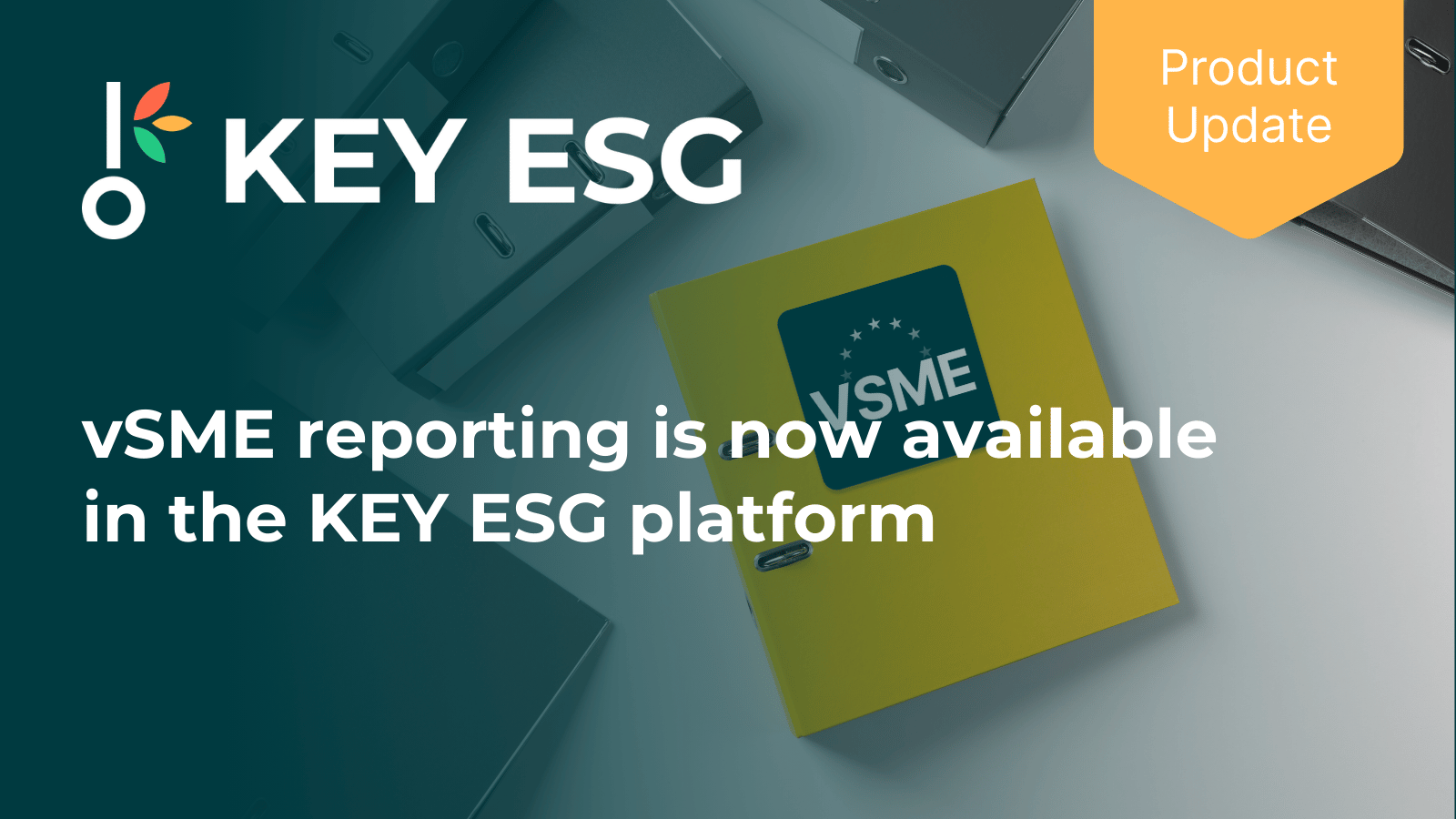The 28th United Nations Climate Change Conference, known as COP28, was held in Dubai, United Arab Emirates in December 2023. The event welcomed 97,000 delegates, including over 150 heads of state, making it the biggest COP conference in history.
COP28 concluded on December 13th 2023, after twelve days of intense negotiations, and the outcomes of the event have renewed many corporations’ commitment to the fight against climate change.
But what does COP28 mean for private equity funds? And how will it affect ESG reporting?
A new commitment to fossil fuel reduction
Over the years, the United Nations has set increasingly ambitious targets with regards to carbon reduction in an attempt to curb emissions. These efforts have led to a global consensus, aligning countries and businesses around the world with a united goal – to reduce emissions and greenhouse gasses. We see this agenda reflected in many different ESG regulations, such as the SFDR, the SDR, the IFRS S1 and S2 standards, the CSRD, etc.
However, at COP28, there was a notable emphasis on the importance of reducing fossil fuel usage, a notably absent feature of COP agreements in previous years. COP president, Sultan al-Jaber, has previously come under fire for his conflict of interest, as he also acts as the chief executive of a major oil company. It was therefore notable that he encouraged many oil producing countries, such as Saudi Arabia, to support the initiative to ‘transition away’ from fossil fuels.
This agreement has been hailed as the “beginning of the end” for the fossil fuel era. The resolution called for deep emissions cuts and scaled-up finance to support a “swift, just, and equitable transition” towards more sustainable energy sources, such as wind and solar power. This move should allow net zero to be achieved by 2050. Efforts to transition away from fossil fuels were bolstered by the deal’s pledge to triple renewable energy capacity globally by 2030.
Despite some frustration at the lack of more radical language used in the deal, achieving agreement among oil producing nations of the need to transition away from fossil fuels is a big step towards climate change mitigation. As Denmark's Minister for Climate and Energy Dan Jorgensen said:
"We're standing here in an oil country, surrounded by oil countries, and we made the decision saying let's move away from oil and gas."
Correcting the course for climate action
COP28 not only set ambitions for the future, but also looked back at progress made so far through the first ever Global Stocktake (GST). The GST revealed that global emissions are continuing to rise by approximately 1.5% a year, when they need to reduce by 7% annually by 2030 to align with goals set out in the 2015 Paris Agreement (which committed to keeping temperature increases below 2°C, with a target of 1.5°C, compared to the pre-industrial era).
With global emissions still rising, COP28 underscored the urgency of reducing emissions and correcting the course for climate action.
What does this mean for private equity and ESG reporting?
With renewed impetus for carbon reduction and a new focus on transitioning away from fossil fuels, we can expect governing bodies to respond with more strict regulations that require companies to evidence their efforts towards mitigating their environmental impact in this regard. Government efforts could also include initiatives like carbon taxes or subsidies for renewable energy, further encouraging businesses to transition away from fossil fuel dependency.
The agreements made at COP28 send a powerful message to the market, highlighting the need for businesses and investors to adopt environmentally conscious practices in order to appeal to consumers and investors, as well as future-proof their operations and value chains.
With so many countries in agreement on this deal, we can expect increased scrutiny on business activities and perhaps even a harmonisation of regulations, as governments work towards a shared objective.
Why are large companies and private equity firms so important to these initiatives?
Larger corporations and private equity managers have the power to radically impact global CO2 and fossil fuel reductions. By monitoring supply chains and making conscientious decisions at the top levels, general partners and corporate managers can make a huge difference, while creating value for their companies and investors.
For this reason, we anticipate an increased focus on ESG management from private equity and large and medium-sized organisations – not only from a regulatory perspective, but also from an investment perspective.
How should companies and private equity firms respond?
With renewed enthusiasm for environmental concerns, it’s more important than ever before to reduce emissions and reduce reliance on fossil fuels. And it is only by tracking these metrics that firms can set targets, evidence improvements, and make lasting changes.
COP28 will be remembered as a pivotal moment in the global response to climate change. The conference’s outcomes have set a new direction for international climate policy and have highlighted the need for urgent change.
As regulations emerge and harmonise in response to COP28 and businesses benchmark themselves against the efforts of their peers, decision-makers can adapt and thrive by optimising their ESG reporting efforts.
Get in touch with us or request a demo of our software if you’d like to discuss how KEY ESG can help.
The 28th United Nations Climate Change Conference, known as COP28, was held in Dubai, United Arab Emirates in December 2023. The event welcomed 97,000 delegates, including over 150 heads of state, making it the biggest COP conference in history.
COP28 concluded on December 13th 2023, after twelve days of intense negotiations, and the outcomes of the event have renewed many corporations’ commitment to the fight against climate change.
But what does COP28 mean for private equity funds? And how will it affect ESG reporting?
A new commitment to fossil fuel reduction
Over the years, the United Nations has set increasingly ambitious targets with regards to carbon reduction in an attempt to curb emissions. These efforts have led to a global consensus, aligning countries and businesses around the world with a united goal – to reduce emissions and greenhouse gasses. We see this agenda reflected in many different ESG regulations, such as the SFDR, the SDR, the IFRS S1 and S2 standards, the CSRD, etc.
However, at COP28, there was a notable emphasis on the importance of reducing fossil fuel usage, a notably absent feature of COP agreements in previous years. COP president, Sultan al-Jaber, has previously come under fire for his conflict of interest, as he also acts as the chief executive of a major oil company. It was therefore notable that he encouraged many oil producing countries, such as Saudi Arabia, to support the initiative to ‘transition away’ from fossil fuels.
This agreement has been hailed as the “beginning of the end” for the fossil fuel era. The resolution called for deep emissions cuts and scaled-up finance to support a “swift, just, and equitable transition” towards more sustainable energy sources, such as wind and solar power. This move should allow net zero to be achieved by 2050. Efforts to transition away from fossil fuels were bolstered by the deal’s pledge to triple renewable energy capacity globally by 2030.
Despite some frustration at the lack of more radical language used in the deal, achieving agreement among oil producing nations of the need to transition away from fossil fuels is a big step towards climate change mitigation. As Denmark's Minister for Climate and Energy Dan Jorgensen said:
"We're standing here in an oil country, surrounded by oil countries, and we made the decision saying let's move away from oil and gas."
Correcting the course for climate action
COP28 not only set ambitions for the future, but also looked back at progress made so far through the first ever Global Stocktake (GST). The GST revealed that global emissions are continuing to rise by approximately 1.5% a year, when they need to reduce by 7% annually by 2030 to align with goals set out in the 2015 Paris Agreement (which committed to keeping temperature increases below 2°C, with a target of 1.5°C, compared to the pre-industrial era).
With global emissions still rising, COP28 underscored the urgency of reducing emissions and correcting the course for climate action.
What does this mean for private equity and ESG reporting?
With renewed impetus for carbon reduction and a new focus on transitioning away from fossil fuels, we can expect governing bodies to respond with more strict regulations that require companies to evidence their efforts towards mitigating their environmental impact in this regard. Government efforts could also include initiatives like carbon taxes or subsidies for renewable energy, further encouraging businesses to transition away from fossil fuel dependency.
The agreements made at COP28 send a powerful message to the market, highlighting the need for businesses and investors to adopt environmentally conscious practices in order to appeal to consumers and investors, as well as future-proof their operations and value chains.
With so many countries in agreement on this deal, we can expect increased scrutiny on business activities and perhaps even a harmonisation of regulations, as governments work towards a shared objective.
Why are large companies and private equity firms so important to these initiatives?
Larger corporations and private equity managers have the power to radically impact global CO2 and fossil fuel reductions. By monitoring supply chains and making conscientious decisions at the top levels, general partners and corporate managers can make a huge difference, while creating value for their companies and investors.
For this reason, we anticipate an increased focus on ESG management from private equity and large and medium-sized organisations – not only from a regulatory perspective, but also from an investment perspective.
How should companies and private equity firms respond?
With renewed enthusiasm for environmental concerns, it’s more important than ever before to reduce emissions and reduce reliance on fossil fuels. And it is only by tracking these metrics that firms can set targets, evidence improvements, and make lasting changes.
COP28 will be remembered as a pivotal moment in the global response to climate change. The conference’s outcomes have set a new direction for international climate policy and have highlighted the need for urgent change.
As regulations emerge and harmonise in response to COP28 and businesses benchmark themselves against the efforts of their peers, decision-makers can adapt and thrive by optimising their ESG reporting efforts.
Get in touch with us or request a demo of our software if you’d like to discuss how KEY ESG can help.


.avif)



